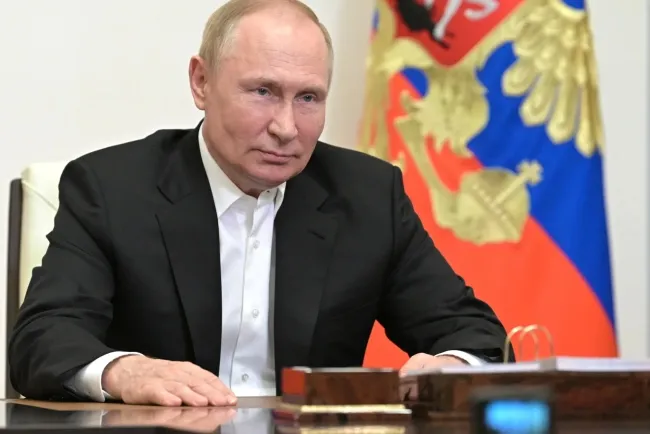Escalating Conflict: Ukraine Faces New Wave of Russian Attacks
Ukrainian President Volodymyr Zelenskyy is calling for intensified international pressure on Russia as the conflict escalates, with recent drone strikes causing civilian casualties. What are the implications for Ukraine's defense strategy and international relations? Read on to find out!
The ongoing conflict in Ukraine has taken a tragic turn as Russian drone strikes recently targeted civilian infrastructure, resulting in at least one death and several injuries in the Zettoir region, west of Kyiv. This latest attack underscores the persistent threat posed by Russian aggression, even amidst calls for diplomacy and a potential ceasefire.
Recent Attacks and Civilian Casualties
The drone strike targeted an apartment building in Ozen, a town known for its proximity to a major military airfield. In addition to Zettoir, other regions including Kharkiv, Donetsk, Zaporisia, and Mikolive have also faced Russian assaults. President Zelenskyy highlighted the toll on Ukrainian civilians, stating that Russia continues to ignore diplomatic efforts and instead leverages international relations solely for its own gains.
These attacks come shortly after the United States proposed a complete ceasefire, raising questions about the effectiveness of diplomatic interventions amid escalating violence. The attacks on civilian infrastructure not only inflict physical damage but also impact the morale and stability of the Ukrainian populace.
U.S. Diplomatic Developments
In the backdrop of these developments, the U.S. State Department confirmed the departure of Ambassador to Ukraine, Bridget Brink, after nearly three years of service. Brink, appointed under the Biden administration, has been a vocal proponent of military support for Ukraine, emphasizing the importance of U.S. assistance in countering Russian aggression. Her departure raises concerns about the continuity of U.S. diplomatic efforts in the region.
International Military Cooperation
Meanwhile, defense ministers from the coalition of allied nations convened in Brussels to discuss future military support for Ukraine. Ukrainian Defense Minister Oleksii Reznikov participated in these talks, which focused on establishing a foreign reassurance force to deter future Russian aggression in the event of a peace agreement. This coalition, comprising 31 member countries, is exploring the concept of a land, air, and sea reassurance force, potentially including troops stationed in Ukraine.
The collaboration between France, Britain, and other allies reflects a commitment to maintaining pressure on Russia and ensuring Ukraine's defense capabilities are bolstered as negotiations continue. The emphasis on a reassurance force indicates an understanding that even in a post-conflict scenario, vigilance and preparedness will be essential.
Conclusion
As the war in Ukraine continues to rage, the international community faces mounting pressure to respond effectively to Russia's ongoing aggression. With President Zelenskyy calling for increased global support and the formation of military alliances, the path toward peace remains fraught with challenges. The future of Ukraine's sovereignty and security will depend significantly on the continued resolve of its allies and the effectiveness of diplomatic efforts in curbing Russian hostilities.
Stay informed with our latest updates as the situation unfolds, and explore the international dimensions of this critical conflict.
What's Your Reaction?
















